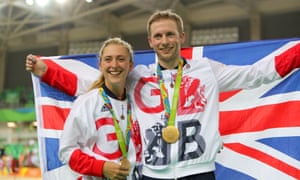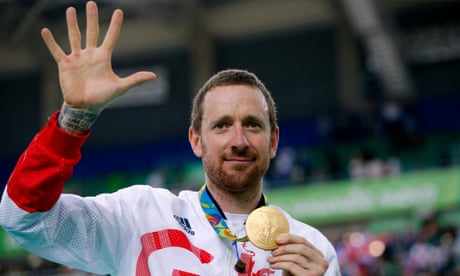Mary Dejevsky in The Guardian
It started on the Iffley Road running track in Oxford, with Roger Bannister and the four-minute mile. It continued with Chariots of Fire, the filmed version of the same, and it was reinforced in the national consciousness with London 2012, the glorious festival of sport that everyone thought was going to be a disaster, but wasn’t.
Along the way came England’s victory (over Germany) in the 1966 World Cup, whose anniversary has been celebrated this year with mawkish nostalgia. And when the medals kept on coming, in this year’s Olympics and the Paralympics in Rio, the self-image of the UK as a highly successful and, of course, squeaky clean sporting nation seemed secure.
That image has been thoroughly discredited this week with the departure, by mutual consent, of the new England football manager, Sam Allardyce, after a mere 67 days. He was the subject of a Panorama exposé 10 years ago – and even I, as a football ignoramus, had caught the drift – which helped to explain why this “obvious” candidate for the England job had never been offered it before.
But now there he was, on camera, courtesy of a classic journalistic sting (by the Daily Telegraph), setting out how the rules of the transfer market could be circumvented, and considering a nice little supplement to his salary.
Nor, it would appear, is he alone in regarding the Football Association’s rules as an inconvenience to be challenged rather than a standard to be upheld. At least eight more guardians of the supposedly “national” game, it is claimed, agree with Sam Allardyce that ethics are for others upright or unambitious enough to heed them. The real pros know different.
If dubious practices were unique to football, that would be one thing. After all, everyone knows – do they not? – that there is far too much money sloshing round in the game generally, not least in England’s Premier League – money that is taking ticket prices out of reach of ordinary families and stifling the growth of homegrown talent.
We also know about the rot that set in long ago at Fifa, the headquarters of international football, so it is hardly surprising if something putrid also contaminates national organisations – including, alas, our own.
But it is not just English football, is it? Football may be the richest and most egregious example, but revelations in recent weeks suggest that question marks hang over other areas of UK sport. Nothing illegal, mind, nothing so crude as the“state-sponsored doping” we so loudly deplore in others, but little tweaks here and there, and especially close readings of the rule book that identify the opportunities between the lines.
So it is that the stellar success story of our times, Britain’s emergence as a world leader in cycling, looks slightly less glorious now that hacked reports have revealed the chemical help some cyclists were receiving – quite legally, it must be stressed – in order, as the people’s hero and multiple Olympic gold harvester Bradley Wiggins put it, to ensure “a level playing field”. Is a doctor’s note now to be considered part of sportsmanship?
And on the eve of the Rio Paralympics, there were reports of unhappiness within the British camp over allegations that classifications were being – how shall we say? – manipulated in the pursuit of more medals. We are sticklers for observing the letter of the law, it would seem, where the spirit of sport is concerned. But the story is starting to look a little different.
The shock here – if it is a shock – should not be that UK sports officials are as adept at playing the system as anyone else – within but sometimes also outside the law. It should rather be the persistence of the myth that only foreigners (especially Russians) cheat, and that British sport across the board – just because it is British – is cleaner, more honest and, yes, more innocent than everyone else’s. It isn’t.

